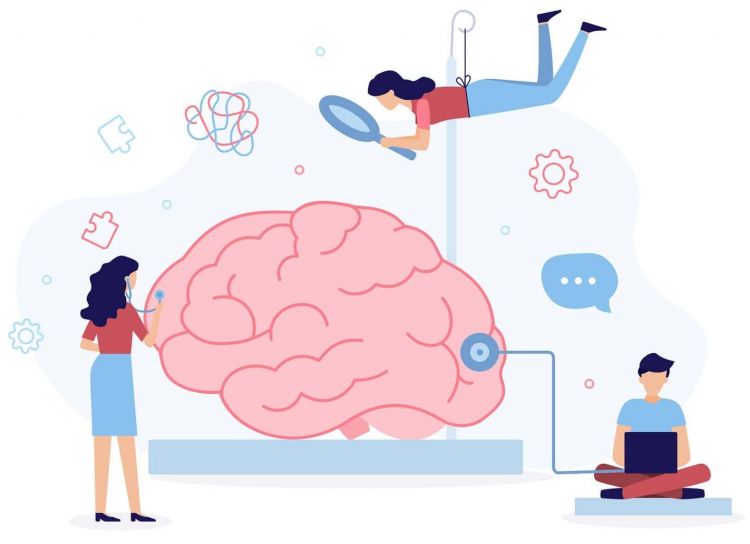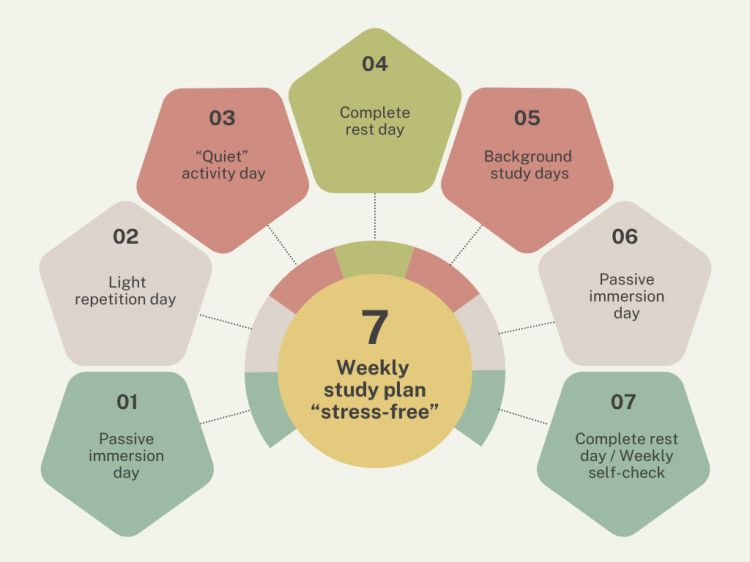
Learning a foreign language is an exciting journey full of discoveries, personal growth, and inspiration. But, as with any other path, temporary difficulties can arise here too.
One such challenging stage is the so-called "learning plateau", when it feels like progress has slowed down or even gone backward. This state is called by different names: "temporary stagnation," "overload phase," "period of doubt". But the essence is the same — motivation decreases, and your efforts seem to bring no result.
A learner may feel that there is too much information, it doesn't fit in the head, and even familiar words suddenly are forgotten. Speaking and understanding become more difficult than before, and this is very demotivating.
Let’s understand when exactly this crisis arises, why it happens, and how to deal with it.
When does the crisis occur?
Most often it appears at the intermediate level of language proficiency — at the so-called “intermediate plateau”. This is the stage when you can already speak, read, and understand a lot, but at the same time new information becomes more complicated, the ease of initial growth disappears, the feeling of progress begins to fade, uncertainty appears, and it seems like you are stuck in place.
It’s important to understand that the speed of going through material is not always your ally. At this stage, not so much the amount of workload is important, but the depth of learning. Striving to further increase the volume of new words or rules is no longer enough. To overcome the plateau, you need to thoroughly consolidate and become aware of what you already know. It’s like with a foundation — it’s better to strengthen the base than to build new floors on top of a shaky foundation.
A language learning crisis can also occur at other moments in the learning process:
- after an intensive course, when the brain simply does not have time to digest the acquired knowledge;
- when moving to a new level of difficulty — for example, from learning materials to conversational speech;
- when you suddenly increase the amount of information being studied, but do not give yourself time for practice and reinforcement.
The reasons for the crisis often lie in the peculiarities of how the brain works. Each of us has our own speed and way of perceiving, processing, and assimilating information. Some people’s skills are formed step by step and linearly, for others — in waves, with sudden jumps after a period of “stagnation". And all this is absolutely normal.
What exactly is happening and why?
- Cognitive overload. At a certain stage, your brain may have difficulty processing a large amount of new information. Learned words, grammatical constructions, and expressions have not yet had time to integrate into speech and be systematized, which is why it sometimes seems like you “recognize” a word, but struggle to “recall” its meaning. This can cause frustration, confusion, and a feeling of slowed progress.
- Lack of repetition and practice. Knowledge becomes strong only when you actively use it. Without constant application, words and structures move into the passive memory. That is why it is important not only to accumulate but also to return to previously covered material.
- Rising expectations of yourself. As your skills grow, you begin to notice mistakes that previously slipped past your attention. This means that you are developing a language sense. However, along with this often comes increased self-criticism: what previously seemed like success may now be perceived as expected and no longer bring satisfaction.
- Psychological fatigue. Often the crisis is not even about the language, but about emotional state. Constant effort, expectations of quick results, comparing yourself to others can lead to feelings of fatigue and disappointment. It is especially hard for those who study independently — without support, without external assessment or feedback.
How to overcome the crisis?
- Give yourself time: allow the information to “settle”. Take a step back: review previously studied topics. This will help your brain organize knowledge.
- Change focus: if you’re tired of grammar — do listening or reading. If you’re tired of textbooks — watch movies, read books, talk to native speakers.
- Include “lazy” learning: passive language perception helps gently keep the language in your mind without overstrain. Your helpers — background podcasts, TV shows without subtitles, simple books in the original language.
- Work with active and passive vocabulary: start your own personal dictionary, regularly repeat and activate already familiar words — make sentences with them, describe pictures, retell texts.
- Use spaced repetition: this method helps memorize words for a long time through repetitions at increasing intervals. Apps like Anki or Quizlet will tell you exactly when to repeat a word to avoid forgetting it.
- Don’t be afraid to make mistakes: it’s normal — to forget something, mix things up, or say it incorrectly; we learn through mistakes. Accepting mistakes reduces anxiety and creates conditions for more effective language practice.
- Don’t compare yourself to others: everyone has their own path, pace, and strengths. Compare yourself only to your past self. The main thing is not to give up and to move forward with understanding and patience toward yourself. Small steps taken regularly and with self-belief lead to big results.
Weekly study plan
We offer a balanced schedule that will gently help overcome the crisis and come out of the learning plateau. It evenly distributes the load across the week and supports stable progress without overload.
Goals:
- minimize stress and overfatigue;
- maintain light but stable contact with the language;
- restore motivation and confidence;
- preserve the habit of regular practice, without overload.
Overall rhythm:
- 3 short sessions per week of 15–30 minutes
- 2 days of passive contact with the language — in the background, without effort
- 2 more days of complete rest from the language — without guilt
Weekly structure
- Light repetition day (once a week)
Goal: consolidate familiar material without overloading the brain with new information.
Tasks:
- Review learned words — 5–10 flashcards (in Anki/Quizlet or a notebook).
- Read a short text you’ve already seen (paragraph, post, book excerpt).
Mark: what became clearer? Which words were remembered? Was it easier to read? - Passive immersion day (1–2 times a week)
Goal: maintain contact with the language in a relaxed way, without active effort.
Tasks:
- Play a 10–15 minute podcast, video, or familiar TV show.
- Just listen, not trying to understand everything 100%, only catch the overall meaning.
Mark: did anything sound familiar? Was it pleasant to just “be near” the language? - “Quiet” activity day (once a week)
Goal: develop flexibility of thinking and language spontaneity.
Tasks:
- Write 3–5 simple sentences about yourself, your day, your plans.
- Read them aloud.
- Try to rephrase 1–2 of them, keeping the meaning.
Mark: how easy was it to find words? Was it pleasant to formulate thoughts? - Background study days (1–2 times a week, optional)
Goal: gently weave the language into everyday life without formal studying.
Tasks:
- Scroll through social media, articles or memes in the target language.
- Notice headlines, familiar words or expressions.
- Listen to songs or podcasts in the background.
Mark: what interested you? Were you able to catch something new? - Complete rest days from the language (2 days a week)
Goal: restore energy and reduce internal tension.
Tasks: do nothing related to the language — rest without guilt.
Mark: did you feel relaxed? Did the desire to continue return? - Weekly well-being check (once a week)
Goal: track your internal state and flexibly adapt your approach.
Ask yourself 3 questions:
- What brought me even a little pleasure this week?
- Where was it easy, and where — difficult?
- What would I like to try changing next week?
Also note: what supports your motivation, and what — overwhelms.
Useful mini-practice ideas:
- Watch one dialogue from a familiar TV show (2–3 minutes).
- Repeat 3 words that started slipping from memory.
- Describe one object around you (in writing or aloud).
- Hear a familiar word — and enjoy recognizing it!
In conclusion
If it feels like you are standing still now, remember: it is precisely during such periods that the deepest internal changes occur. The feeling of a plateau is a natural stage in language learning. At this time, your brain, without you noticing, is processing, organizing, and automating the knowledge you have received. It seems like nothing is happening, but in fact, intense inner work is in progress. And at some point, you will suddenly notice that you speak more freely and even begin to think in the foreign language. Trust the process, give yourself time — and most importantly, keep going: you are moving forward, even if you don’t feel it yet. The result will definitely come — and perhaps pleasantly surprise you soon.
And if you need support at this stage, try lessons with the experienced teachers at the online school Skype-Language.com. Their deep methodological expertise, professionalism, and many years of practical experience will help you overcome the learning plateau, regain confidence, and once again enjoy the process of language learning.

































